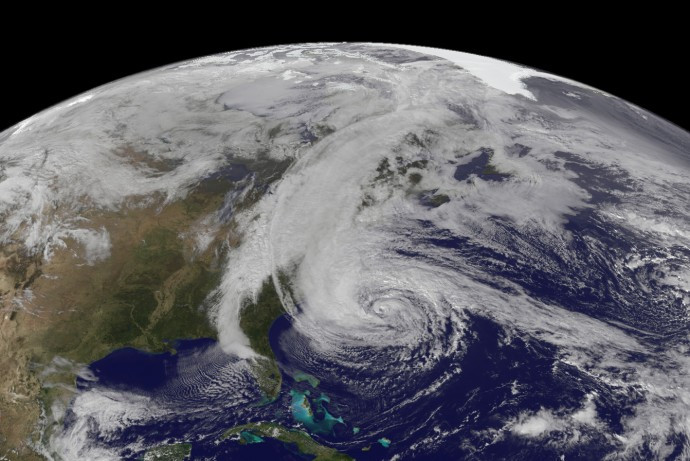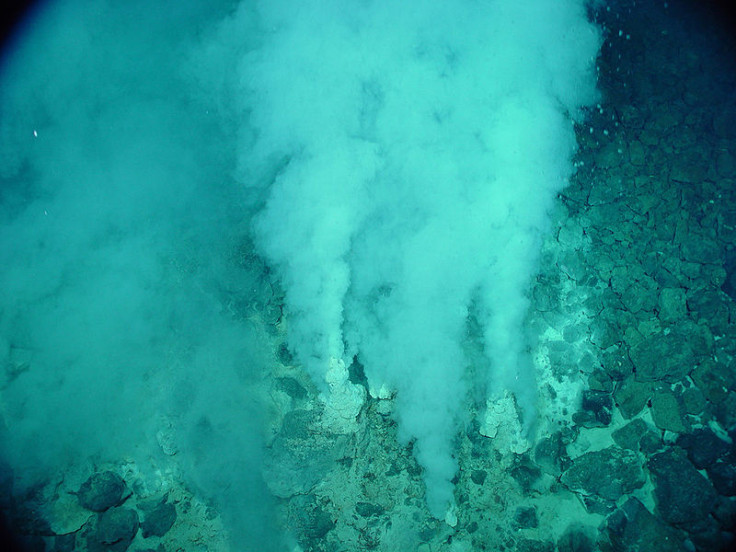Origin of Life: Reconstructed Ancient Ocean Reveals Metabolism Existed Before Life Itself

The mystery behind how the first organisms on earth could have become metabolically active has been unlocked. Introducing a "chicken or the egg" causality dilemma, the findings suggest a different order for the sequence of events that led to the origin of life.
Researchers from the University of Cambridge created a reconstruction of Earth's earliest ocean in a laboratory, which has given scientists an insight into how primitive cells learned to synthesise their organic components - the molecules that form RNA, lipids and amino acids.
The team reconstructed the conditions of this prebiotic sea based on the composition of various early sediments described in the scientific literature.
Data from their creation revealed the spontaneous occurrence of the chemical reactions used by modern cells to synthesise many of the fundamental organic molecules of metabolism.
Previously, it was assumed such reactions were carried out in modern cells by metabolic enzymes, highly complex molecular machines that came into existence during the evolution of modern organisms.

Around 4 billions years ago, life on Earth began in iron-rich oceans that dominated the planet. Scientists have been trying to determine when and how cellular metabolism, the network of chemical reactions necessary to produce nucleic acids, amino acids and lipids - the building blocks of life - appeared on the scene.
The observed chemical reactions occurred in the absence of enzymes but were made possible by the chemical molecules found in the Archean sea.
The Archeon Eon, one of the four principal eons of Earth's history, took place around 2,500 million years ago.
According to the team, finding a series of reactions that resemble the "core of cellular metabolism" suggests that metabolism predates the origin of life. This implies that, at least initially, metabolism may not have been shaped by evolution but by molecules like RNA formed through the chemical conditions that prevailed in the earliest oceans.
Dr Markus Ralser, group leader at the Department of Biochemistry, said: "Our results demonstrate that the conditions and molecules found in the Earth's ancient oceans assisted and accelerated the interconversion of metabolites that in modern organisms make up glycolysis and the pentose-phosphate pathways, two of the essential and most centrally placed reaction cascades of metabolism."
"In our reconstructed version of the ancient Archean ocean, these metabolic reactions were particularly sensitive to the presence of ferrous iron that helped catalyze many of the chemical reactions that we observed," he added.
To replicate the ocean, different metabolites were incubated at temperatures similar to those of hydrothermal vents of oceanic volcanoes. Such high temperatures would not support the activity of conventional protein enzymes.
The chemical products were then separated and analysed by liquid chromatography tandem mass spectrometry. Some of the observed reactions could also take place in water but were accelerated by the presence of metals that served as catalysts.
Ralser explained: "In the presence of iron and other compounds found in the oceanic sediments, 29 metabolic-like chemical reactions were observed, including those that produce some of the essential chemicals of metabolism, for example precursors of the building blocks of proteins or RNA.
"These results indicate that the basic architecture of the modern metabolic network could have originated from the chemical and physical constraints that existed on the prebiotic Earth."
The report was published in the journal Molecular Systems Biology.
© Copyright IBTimes 2025. All rights reserved.






















